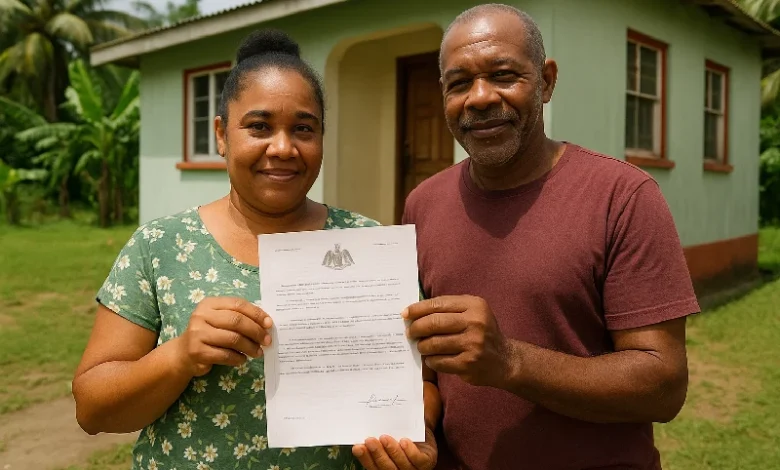Title by Registration Act (TRA) of Dominica

The Title by Registration Act (TRA), formally cited as Chapter 56:50 of the Revised Laws of Dominica, governs the registration of land and property titles under the Torrens system. This legislation serves as the principal framework for ensuring the certainty of ownership and security of tenure in Dominica. It provides a centralised registry where the legal title to land is recorded in the form of a certificate, which serves as conclusive proof of ownership.
The TRA allows individuals who meet specific requirements to bring unregistered land under the title system. To obtain a first certificate of title, the applicant must apply to the High Court and present either documentary title tracing back several decades or demonstrate at least 12 years of uninterrupted, undisputed possession. The Registrar of Titles oversees the procedure, and once a title is granted, the holder is legally recognized as the proprietor, free from most previous claims. All subsequent dealings with that land, such as transfers, mortgages, or leases, must be registered to maintain legal validity.
A significant strength of the TRA is that it provides indefeasible title, which means the certificate is generally immune from challenge. However, the law does acknowledge limited exceptions. For example, if a person has acquired land through adverse possession under the Real Property Limitation Act (RPLA), their claim may prevail even over a registered title. This was reinforced in the Caribbean Court of Justice’s 2019 decision in George v Guye, which clarified that statutory possession under RPLA could override a certificate of title, even if the possessor had not made a formal application under section 33 of the TRA.
The TRA also accommodates the registration of state lands and government-issued grants. Once land is granted by the state and brought under the registration system, a certificate is issued to the recipient, replacing all prior documentation or conveyance deeds. At that point, the land falls within the purview of the Torrens system, and all future transactions must go through the Registrar of Titles to be recognized legally.
Moreover, the Act ensures protection for individuals who might suffer financial loss due to wrongful entries in the register by establishing a Land Assurance Fund. This fund provides compensation in the rare instance that someone is deprived of land or interest in land due to registration errors or fraud.
The TRA plays a foundational role in shaping Dominica’s modern land ownership structure. It provides both legal clarity and institutional protection while coexisting with traditional principles such as prescription through long-term occupation. However, its interaction with older laws like the RPLA continues to pose challenges in certain land disputes, especially in rural communities where generational occupation may not always have been formally registered.
Key Provisions of the Title by Registration Act (TRA) of Dominica
- Certificate of Title: Issued by the High Court upon successful application; serves as conclusive proof of ownership.
- First Registration: Requires evidence of 12+ years of possession or clear documentary title.
- Indefeasibility: Registered titles are protected from most legal challenges, with limited statutory exceptions.
- Adverse Possession Exception: RPLA rights may override registered titles after 12 years of uninterrupted possession.
- Caveats and Objections: Interested parties may file caveats to oppose pending applications.
- Registrar of Titles: Official responsible for maintaining and updating the registry.
- Land Assurance Fund: Offers compensation for loss due to registry mistakes or fraud.
- State Grants: Government-issued lands can be registered directly under the TRA system.
- Transfers & Mortgages: All land dealings must be registered to be legally enforceable.
- Repeals & Supersession: Once registered, older deeds are nullified for that parcel of land.




